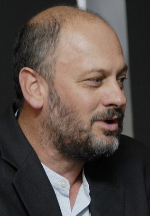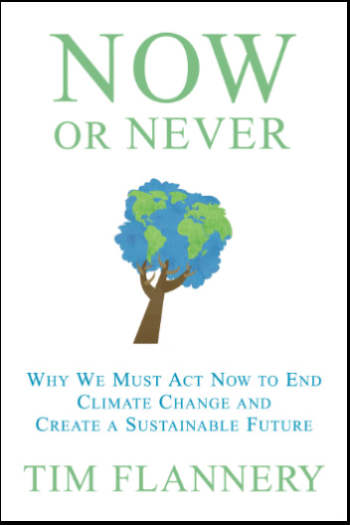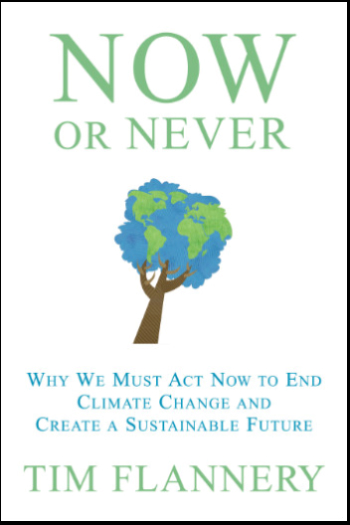 Tim Flannery says the U.S. Senate absolutely must pass some form of carbon cap before the Copenhagen talks in December.Mark Coulson, 5th World Conference of Science JournalistsDon’t let the perfect be the enemy of the absolutely essential.
Tim Flannery says the U.S. Senate absolutely must pass some form of carbon cap before the Copenhagen talks in December.Mark Coulson, 5th World Conference of Science JournalistsDon’t let the perfect be the enemy of the absolutely essential.
That’s the message author and climate campaigner Tim Flannery brought to Grist’s Seattle office today. By that, he means: The U.S. Congress absolutely must pass climate legislation that puts a cap on the country’s total carbon emissions. Failure to do so will take pressure off other nations to follow suit, effectively undermining the spirit and intent of the international climate talks set to happen in Denmark in December.
Flannery is an Australian scientist-activist in the model of Carl Sagan, James Hansen or Stephen Jay Gould. The author of the influential book The Weather Makers and chairman of the Copenhagen Climate Council, he’s traveling the United States promoting his latest book, Now or Never: Why We Must Act Now to End Climate Change and Create a Sustainable Future.
The inspirations for the book, he said, are the political tracts and pamphlets of 17th and 18th century Britain — lengthy, often underground, publications circulated by the various political factions.
“It’s a tract for our times,” he said — 20,000 words making the case for why the world must get serious about global warming.
If the U.S. Senate fails to pass a companion to the Waxman-Markey cap-and-trade bill, America will show up in Copenhagen without anything to put on the table, Flannery said. “The United States needs to be able to demonstrate a commitment to reducing total emissions,” he said.
 Atlantic Monthly PressFor climate activists who say no bill is better than a watered down climate law, Flannery says cool it. As long as a firm cap is put in place, he said, it will spur the international talks and, more importantly, boost alternative energy.
Atlantic Monthly PressFor climate activists who say no bill is better than a watered down climate law, Flannery says cool it. As long as a firm cap is put in place, he said, it will spur the international talks and, more importantly, boost alternative energy.
Flannery praised the Waxman-Markey bill in particular, noting that its provisions calling for a huge U.S. investment in international carbon credits amounts to “the perfect mechanism for exporting cap-and-trade to the rest of the world.”
The agricultural offsets included in Waxman-Markey, he said, will drive additional research into how much carbon farmland can store and how it should be managed to maximize storage. That, he said, will do much to spur a vibrant market in carbon credits.
For readers who will be making the trip to Copenhagen, Flannery advises that you study up on your Shakespeare. The Copenhagen Climate Council has rented out the historic Kronborg Castle, famous as the setting for Hamlet, and will use it on Dec. 12 as a stage for scores of business leaders to talk about the importance of finalizing a global climate deal.
And a word of consolation for American climate campaigners: If you think the coal lobby is bad here, move to Australia, where 90 percent of the country’s electricity comes from coal-fired plants. The industry’s influence over the political system is expansive, with the conservative Liberal Party beholden to the mining and power generating companies while Labor must balance its support for change with the need to curry favor with an important political constituency — the labor unions that represent coal industry workers.
Flannery will speak tonight at Town Hall in Seattle. The point he will stress to the audience: Our planet is at a critical moment in time, and voters in United States in particular are at a critical juncture. Carbon emissions need to be capped and curtailed, otherwise we’re on track for 1,000 ppm of atmospheric carbon dioxide.
Best-case scenario, Flannery said, is that we max out at 450 (we’re at about 390 now). Those may sound like dry numbers, but a 1,000 world would look drastically different than a 450 world. Just ask the folks at 350.



